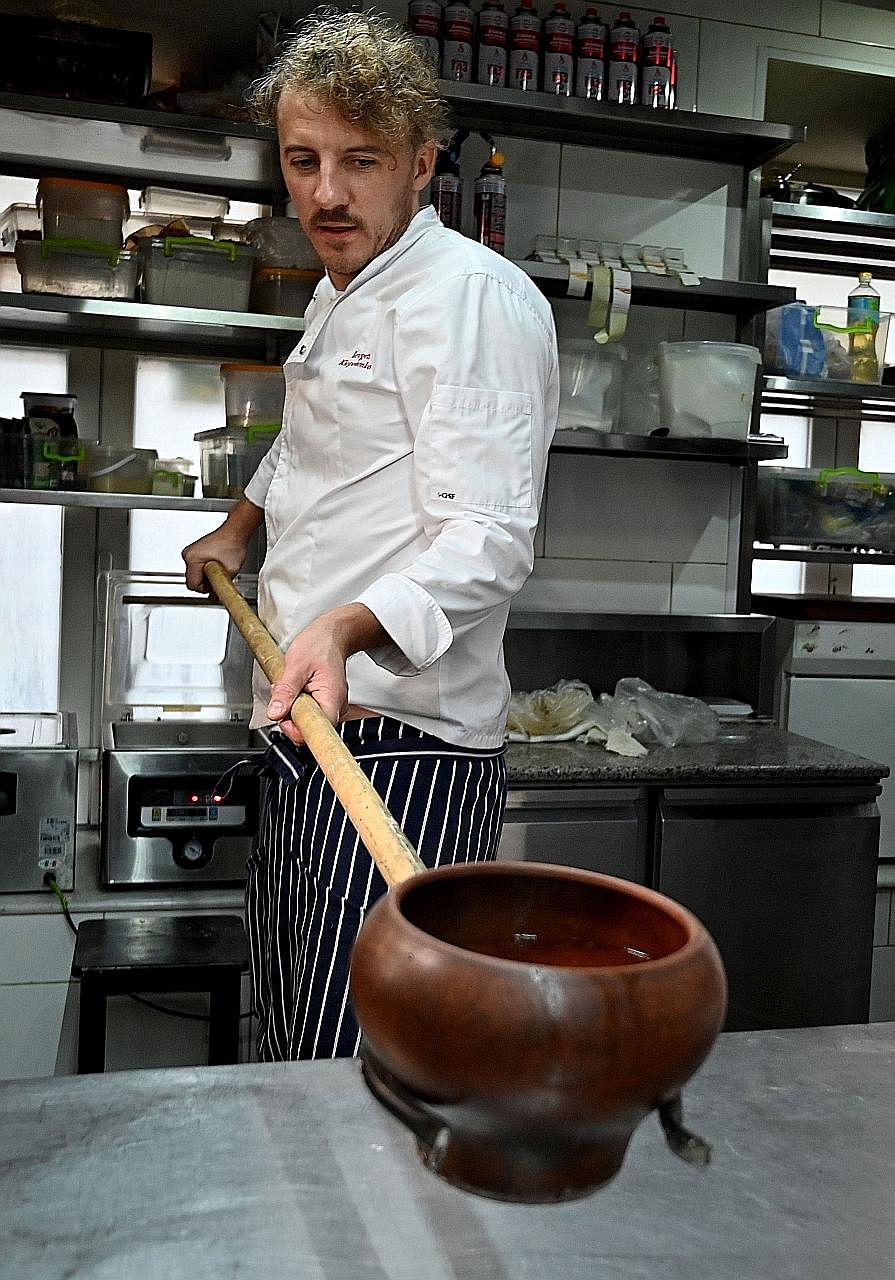Heritage FOOD fight
Beetroot and cabbage soup stirs up heated debate
Sign up now: Get ST's newsletters delivered to your inbox
KIEV • Ukrainian chef Ievgen Klopotenko never expected to find himself at the centre of the conflict between Russia and Ukraine.
But that is just what happened when the 33-year-old pushed to have borscht - the traditional beetroot and cabbage dish - recognised as part of Ukraine's historical heritage.
"I don't really like to call it a war for borscht, but in fact that's what it is," Mr Klopotenko told Agence France-Presse in his renowned Ukrainian restaurant in central Kiev.
The chef said he was fed up with how restaurants around the world - including those serving "so-called Ukrainian cuisine" - were referring to borscht as Russian soup.
So last month, he brought a pot of borscht to Ukraine's culture ministry to convince officials to submit an application to United Nations cultural body Unesco to list borscht as an intangible part of the country's cultural heritage.
The list already includes French gastronomy, Neapolitan pizza and Georgian wine.
The ministry agreed and said it was preparing the application to Unesco before the March deadline, so it can be examined in December next year.
And suddenly Moscow bristled.
"Borscht is a national food of many countries, including Russia, Belarus, Ukraine, Poland, Romania, Moldova and Lithuania," Russia's embassy in the United States said on Twitter.
The Russian government then tweeted, calling borscht "one of Russia's most famous and beloved dishes and a symbol of traditional cuisine".
Ukrainians claim that borscht was first mentioned in 1548 in the diary of a European traveller who tasted the soup in a market near Kiev. They say it arrived in Russia much later with Ukrainian settlers.

Ukrainian chef Ievgen Klopotenko cooking borscht, a traditional beetroot and cabbage dish, in his restaurant in Kiev last month. The chef, fed up with how restaurants globally were referring to borscht as Russian soup, convinced Ukraine's culture ministry to submit an application to Unesco to list borscht as an intangible part of the country's cultural heritage.
PHOTO: AGENCE FRANCE-PRESSE
Tensions between Kiev and Moscow have flared in the decades following the break-up of the Soviet Union in 1991. After a pro-Western popular uprising in Kiev in 2014, followed by Russia's annexation of Crimea and support of separatists in the east, the confrontation has intensified.
For Mr Klopotenko, the battle over borscht is really about Ukraine's identity. Much of what is now Ukraine was part of the czarist Russian empire and later the country became part of the Soviet Union.
"When I started studying Ukrainian food and cuisine, I realised that Ukrainian cuisine does not exist in Ukraine. It's all Soviet," Mr Klopotenko said.
But there is one thing for Mr Klopotenko that is quintessentially Ukrainian: the beetroot and cabbage soup. "I realised that borscht is what unites us," he said. "We may be different, we eat different types of borscht cooked to different recipes, but it's borscht."
The application will not contain a recipe for borscht as "nobody knows the authentic one" he said.
AGENCE FRANCE-PRESSE


